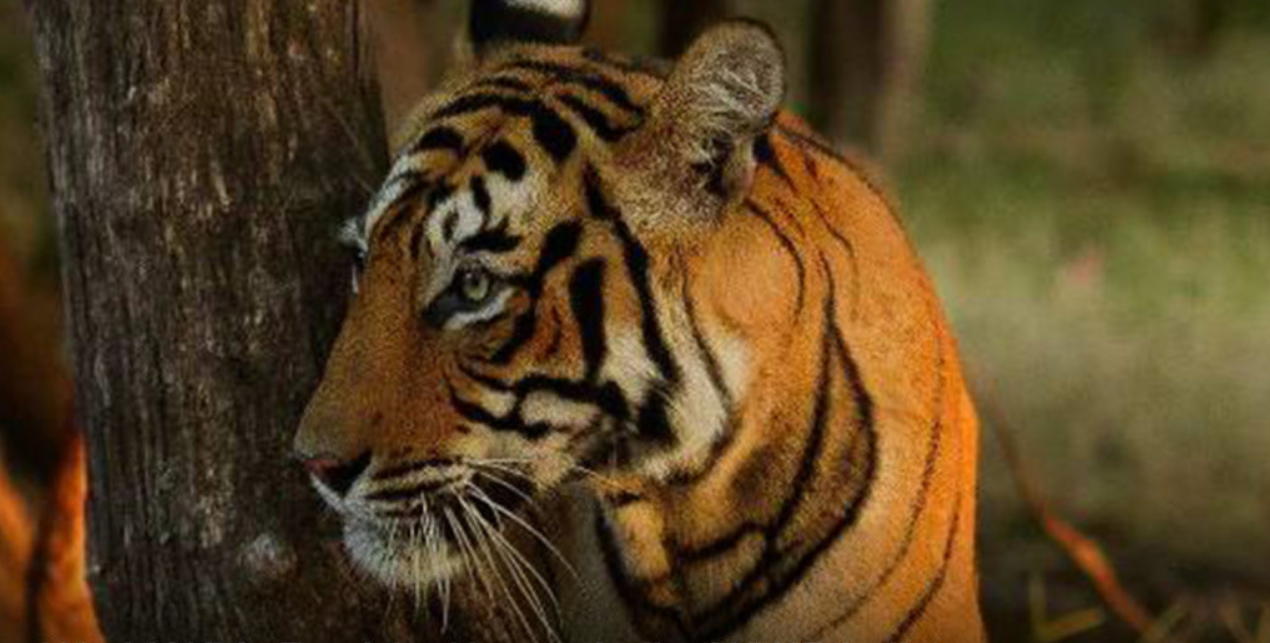TO raise awareness about the majestic but endangered big cat, the world has been celebrating International Tiger Day on July 29 every year since 2010. The St. Petersburg conference of 13 tiger range countries decided that tiger conservation and protection of its habitats would be the focus of this special day. The conference also set a goal to double the number of wild tigers by the year 2022.
In the past century, wild tiger numbers have dwindled from 100,000 to around 4,000. According to the St. Petersburg declaration, the tiger population had declined by 40% from 2000-to 2010 alone. There has been an unprecedented increase in habitat loss, poaching, illegal wildlife trade and human-tiger conflict. International Tiger Day would help spread awareness about the tiger’s importance in maintaining biological diversity.
The world may have fallen short of doubling the tiger population by 2022 but India, where 70% of the big cats live, has been doing a decent job. According to the last tiger census in India, the tiger population has risen from 2,226 in 2014 to 2,967 in 2018. But the threat to the wildcat and its habitat is as big as ever. The demand for tiger bones for medicinal uses in China and south-east Asian countries has increased the threat. One of the most successful tiger conservation projects in India was Project Tiger. Launched in 1973, many people credit Project Tiger for bringing the tiger population back from the brink.
Over the years, several NGOs have worked for tiger conservation and related fields. They have been protecting the tiger from various threats. Here, we look at the top five nonprofits working in the area.
World Wide Fund for Nature-India (WWF-India)
To ensure the conservation of India’s wildlife and natural habitats, the World Wide Fund for Nature-India (WWF-India) was founded in 1969. WWF is a globally credible nonprofit working on the ground in over 100 countries. Its mission to protect tigers is also more than five decades old. WWF-India addresses species conservation through field-level activities across the country. It focuses especially on threats to wild tigers and the issues surrounding these threats.

WWF-India works very closely with forest departments in the country. It conducts camera-trapping exercises and line-transect monitoring across the country to mitigate human-tiger conflict, eliminate poaching and curb illegal wildlife trade. WWF-India became the first NGO partner of the Government of India to conduct the most comprehensive countrywide tiger estimation exercise in 2010-11. It also works on securing essential wildlife corridors and identifying potential tiger habitats outside the core areas. You can support WWF-India’s tiger conservation initiatives by giving here.
Wildlife Protection Society of India
Belinda Wright, an award-winning wildlife photographer and filmmaker, founded the Wildlife Protection Society of India (WPSI) in 1994. WPSI’s primary aim has been to highlight the daunting task of tackling India’s growing wildlife crisis. It does this by providing support and information to government authorities to combat poaching. It also escalates illegal wildlife trade – particularly in wild tigers.

The WPSI has pioneered investigations into the trade of tiger parts and other endangered species in the illegal wildlife trade. The organisation has exposed widespread tiger poaching and its links to the use of tiger parts in traditional Chinese medicine. WPSI maintains a database on tiger poaching, trade and wildlife crimes and spreads awareness about tiger conservation. It also has a secret information reward scheme to encourage people to report poaching or illegal wildlife trade and has a solid grassroots NGO support network. You can lend support to their programmes by making a donation here.
Wildlife Trust of India
The Wildlife Trust of India (WTI) began as a three-member team in Delhi in 1998 and today it is a family of around 150 professionals. They come from diverse backgrounds – conservation biologists, scientists, sociologists, wildlife veterinarians, managers, lawyers, finance experts and communication specialists. From assisting forest departments as they rescue tigers from conflict situations, to spreading awareness about the importance of tiger conservation and addressing the human-tiger conflict, the WTI is involved in various tiger-related projects in the country.

The WTI works on other wildlife areas too, like turning whale shark hunters into staunch protectors in Gujarat. It has relocated distressed Hoolock gibbons in Arunachal, restored mangrove forests in Kerala and prevented elephant deaths due to train collisions in Uttarakhand. It runs several community projects on the fringes of tiger reserves with micro-credit schemes and others. You can support their initiatives by clicking on this link to donate.
Wild Tiger Foundation (WTF)
This is a CSR initiative by an alcoholic beverage named Wild Tiger which has focused on conserving the tiger and its habitat in South India. It does this by creating awareness about the importance of tiger conservation in Kerala, Karnataka and Tamil Nadu. The WTF works closely with the Centre for Wildlife studies (CWS) to reverse the decline of many wildlife species and their habitats. The Indian wing of the CWS is dedicated to saving the tigers. It carries out its activities through science, conservation, education, and the management of national parks.

Besides compensating the villagers for livestock kills in the Sathyamangalam and Wayanad tiger reserves, WTF has helped the Forest Department modernize. It also raises awareness and encourages sports teams, brands and corporations to increase the tiger imagery in their communication materials. This will help in spreading awareness about tiger conservation. You can support their efforts by making a charitable donation here.
Saving Tiger Society
Saving Tiger Society (STS) is a Kolkata-based organisation involved in the protection and conservation of wildlife and forests in India. It has tiger-related projects in Madhya Pradesh and West Bengal. With human encroachment of forest areas becoming a major reason for man-animal conflict, STS has been trying to mitigate the problem by working with all the stakeholders. It primarily focuses on the Sundarbans in West Bengal which is a UNESCO’s World Heritage Site and home to the majestic Royal Bengal Tiger. The STS works closely with the state forest department and the local people in its efforts.

The STS educates and spreads awareness about man-animal conflict. It has ‘Tiger Squad’ teams to patrol the areas to stop tiger poaching and it organises health camps in villages near the tiger reserve areas. It also conducts nature education classes in schools. You can support STS’s initiatives by donating here.
This blog was updated in December 2023.
–
Give’s mission is to “make giving bigger and better.” Give is the most trusted donation platform in India for fundraisers and crowdfunding campaigns. Through our technology solutions, we enable individuals and organisations to fundraise and donate to a cause, charity or NGO with trust and convenience. Give’s community of 2.7M+ individual donors and 300+ organisations supports 3,000+ verified nonprofits with 80G deduction and serves 15M+ people across India. Find a fundraiser today!

Kumara was a professional journalist for over 15 years, with stints in The Telegraph and Reader’s Digest. He grew up hating maths and physics. He is a post-graduate in history. Kumara believes that cricket and Seinfeld have answers to most questions that life throws at you.
Discover more from
Subscribe to get the latest posts sent to your email.

